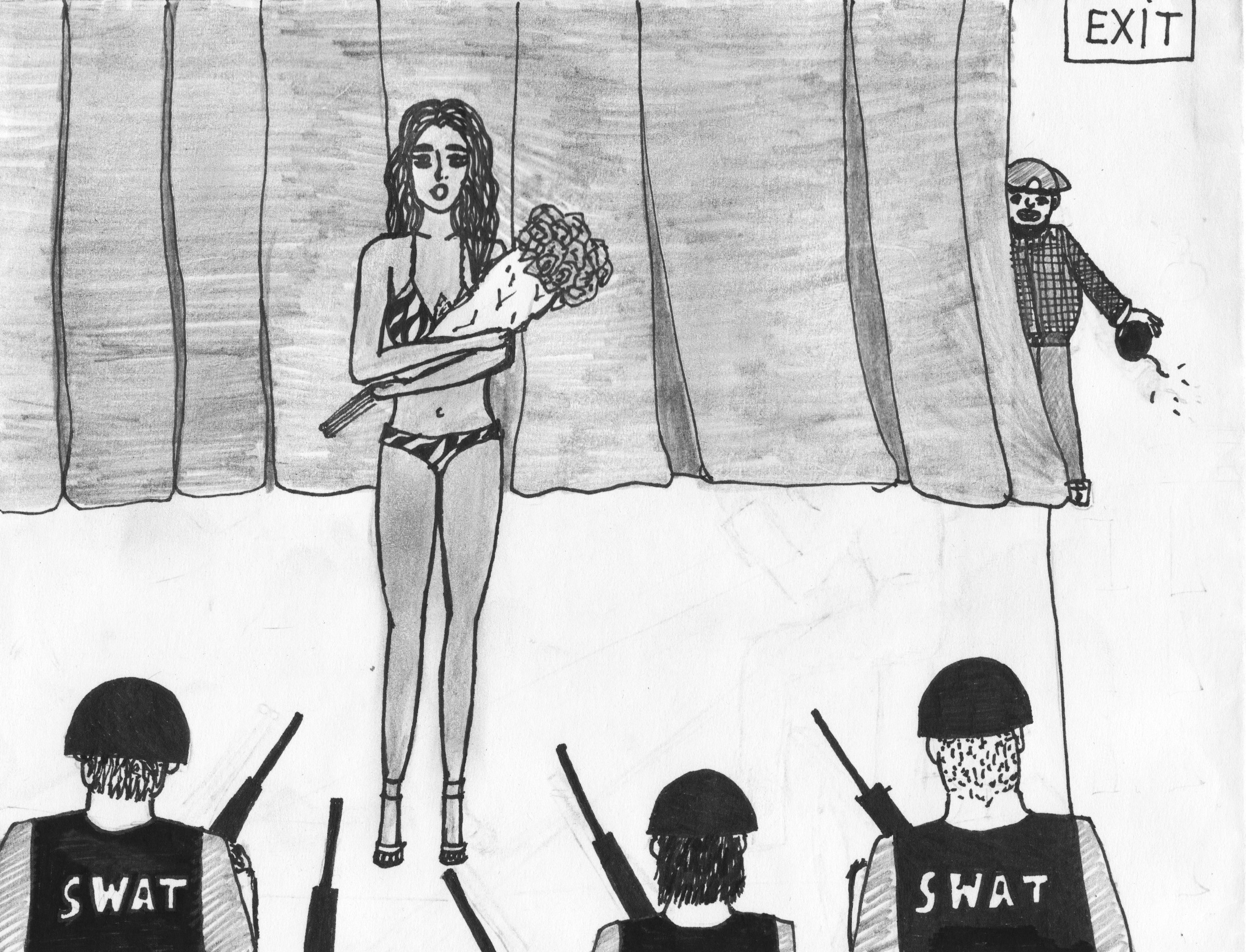Looking out upon a sea of anxious faces, Nina Davuluri, standing hand-in-hand with her opponent, learned that she would become the first Indian-American woman to ever win the Miss America pageant.
With the announcement of “Miss New York,” and a roar from the crowd, a shiny tiara was placed atop Miss Davuluri’s head in a victory for multiculturalism—an outcome that she had desperately hoped for, but that angry Twitter users would not put up with.
Minutes after her triumph, Twitter exploded with several hundred racist comments. Among them were “Miss America? You mean Miss 7-11,” by one particularly astute user named Mr. CHEEZ-IT, while another insightful user tweeted, “Miss America, footlong buffalo chicken on whole wheat. Please and thank you.”
Although none of these comments are acceptable, they also aren’t surprising. As a woman of Indian descent who has lived in the Deep South for most of my life, I have learned two things: first, that fried green tomatoes are the most delicious version of a vegetable and, second, that structural racism will always exist. That isn’t to say we shouldn’t work toward a world of racial equity, but that these comments are predictable.
What shocked and angered me, however, were Twitter comments like these: “Miss America right now or miss Al Qaeda,” by Shannon McCann, “More like Miss Terrorist” by Not Miss America, and the most unreasonable, “9/11 was 4 days ago and she gets miss America?” by one sadly misinformed Twitter user.
In addition to showcasing Americans’ enduring racist attitudes, the reaction to the Miss America pageant exposes a dangerous rhetoric of terror talk. This rhetoric fuels an unreasonable stigma toward international terrorism, classifies the “Arab” as a real threat, and displays the persistent xenophobic attitude of American culture.
Nina Davuluri is not an Arab, and, even if she were, comments implying she is a terrorist could never be justifiable. She was born in New York and went to the University of Michigan—she is an American. Although it might be tempting to believe that her cultural origin points to a different conclusion, a quick Google search could prevent this onslaught of racist tweets.
The ease with which people use the term “terrorist” shows that many Americans don’t understand the reality of modern terrorism. Such terror talk only assists militant groups, which maintain their power by promoting a message of conflict between Islam and the West. When we indict anyone who may be perceived as a foreigner and use rhetoric that demeans the actual meaning of terrorism, we grant terrorist groups the source of their power—an unreasonable hatred toward the “others.”
Sept. 11, 2001 was a tragic day in American history that will always exist in our collective memory. But, it was also the point at which the U.S. government radically changed and improved its homeland security and counterterror efforts. Since 2005, international terrorism directed at the United States has dramatically decreased, reaching its lowest point in 2009, and continues to maintain similarly low levels.
Multiple recent incidents, however, point to the higher probability of homegrown, domestic terrorism. In Aug. 2012, Wade Michael Page, a white man and army veteran, entered a Wisconsin Sikh Temple and killed six people. In 2008, an American truck driver, Jim Adkisson, opened fire at a Unitarian church and killed two people. In 2010, Andrew Stack, yet another Caucasian man, crashed his personal plane into an IRS office in Texas.
These are just a few of the many instances of homegrown terrorism that haven’t involved jihadist groups or foreigners, which isn’t even to mention recent shootings at Sandy Hook, Newtown, Virginia Tech, and the Washington Navy Yard. Meanwhile, in 2012, there were only nine terrorist plots involving American Muslims.
Take it from someone who has been called a terrorist before—it’s not fun. Our rhetoric plays a role in combating this fear, and we can start by thinking twice before calling someone who looks foreign a terrorist. I think Stephen Colbert characterized our tendency to resort to terror talk well when he said “That’s right. Seven hundred and five people saw a woman in a bikini and thought: Muslim Extremist.”





Very well put Shalina! Hope all is well in Georgetown sweetie. Take care and be safe!
Very well put? The writing is atrocious. One sentence suffices to prove it:
“This rhetoric fuels an unreasonable stigma toward international terrorism, classifies the “Arab” as a real threat, and a displays the persistent xenophobic attitude of American culture.”
“Multiple recent incidents, however, point to the higher probability of homegrown, domestic terrorism. In Aug. 2012, Wade Michael Page, a white man and army veteran, entered a Wisconsin Sikh Temple and killed six people. In 2008, an American truck driver, Jim Adkisson, opened fire at a Unitarian church and killed two people. In 2010, Andrew Stack, yet another Caucasian man, crashed his personal plane into an IRS office in Texas.”
Do you people ever read what your write before you publish? “yet another Caucasian man”? Are you kidding?
yes and no
the “yet another Caucasian” drips with stereotyping and prejudice. If that’s ok with you, then you have no business complaining about racial prejudice of any kind. You trash your credibility when you write nonsense like this—too bad you’re too full of your own self-righteousness to notice.
The lack of intellectual rigor in here is truly breathtaking.
Tweet for this article says “Miss USA pageant elicits hate rhetoric…” FYI Nina Davuluri won the Miss America pageant for the Miss America organization, NOT the Miss USA pageant, which is run by Donald Trump, an entirely different pageant and organization altogether. Worth fixing, in my opinion.
Maria, in a screed that contains the following tortured prose:
“When we indict anyone who may be perceived as a foreigner and use rhetoric that demeans the actual meaning of terrorism, we grant terrorist groups the source of their power—an unreasonable hatred toward the ‘others.'”
my sense is that a factual error isn’t top of mind.